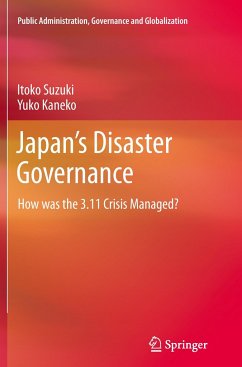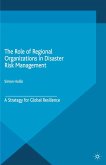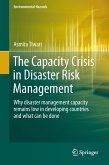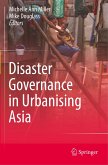Natural disasters are often multifaceted and cause severe damage. Disasters initiated locally can become national and even global crises. Today's world urgently needs a new body of knowledge and techniques for the mitigation of and response to disaster. Central to such a body of knowledge are disaster preparedness, emergency and crisis management systems of government, of which capacity building is becoming an increasingly important element in public administration, management and governance. Today, disasters are to be managed by sound local, national, and global governance, through all the phases of preparedness, prevention, mitigation and then to relief, recovery and re-construction. During all these phases, government plays the most important role.
This book provides a case of the disaster governance of Japan, by presenting information and analyses on what happened in the Magnitude 9 Great East Japan Earthquake that caused the huge tsunami and the INES Level 7 Fukushima nuclear power plants accidents on March 11, 2011. In examining this Japanese case study, this book illustrates the socio-economic damage of the stricken areas together with the overall picture of the disasters. It examines Japan's capacity for disaster governance and it's crisis management system in response to the most devastating disaster that the country has ever encountered since the end of WWII. It also offers preliminary findings learned from this experience in the Japan's public administration and governance systems, challenged to be more accountable and transparent during the recovery and reconstruction efforts now in progress.
This book provides a case of the disaster governance of Japan, by presenting information and analyses on what happened in the Magnitude 9 Great East Japan Earthquake that caused the huge tsunami and the INES Level 7 Fukushima nuclear power plants accidents on March 11, 2011. In examining this Japanese case study, this book illustrates the socio-economic damage of the stricken areas together with the overall picture of the disasters. It examines Japan's capacity for disaster governance and it's crisis management system in response to the most devastating disaster that the country has ever encountered since the end of WWII. It also offers preliminary findings learned from this experience in the Japan's public administration and governance systems, challenged to be more accountable and transparent during the recovery and reconstruction efforts now in progress.








